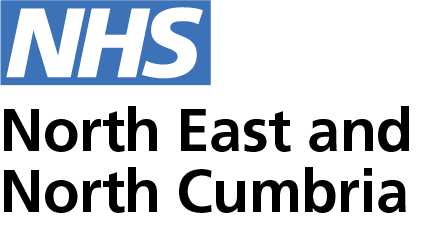
Anna Pickford, Principal Intelligence Analyst for Population Health Management and Prevention at NECS, is supporting the Healthier and Fairer programme within NENC ICB and looks at how utilising data can support the NHS Long Term Plan to prevent and manage cardiovascular disease.
"The NHS Long Term Plan identifies cardiovascular disease (CVD) as a clinical priority and the single biggest condition where lives can be saved. The ambition is to prevent 150,000 heart attacks, strokes and dementia cases over the next ten years.
"CVD Prevent is a national initiative with links to the UK government's Major Conditions Strategy and the wider Healthier and Fairer programme being carried out within North East and North Cumbria (NENC). Due to the high prevalence of the condition, this is a relevant priority in most regions.
"We already understand that there are many known risk factors associated with CVD such as hypertension, diabetes, a high BMI and smoking. Preventing and managing the condition effectively therefore has the potential to improve overall life expectancy of the population, reduce inequalities and the demand for services.
"So how do we begin to implement targeted strategies to improve the outcomes of patients affected by cardiovascular disease?
"Integrated Care Systems (ICSs) can help by establishing strong local leadership and partnerships with public health and voluntary services; utilising data and digital solutions to reduce clinical variation; identify outliers across the system that have a higher prevalence of CVD; raise awareness of the condition at ground level and analyse patient cohorts who are most at risk in terms of poorer outcomes or hospital admission.
"NECS' RAIDR is one of the UK's leading business intelligence and risk stratification tools, providing users across the health and social care system with actionable insights. Our suite of interactive, self-serve dashboards enable data driven decision making for better outcomes. The digital solution has been used successfully by Integrated Care Boards (ICBs) across England to create proactive care models, reduce costs, improve data quality and inform commissioning and the effective allocation of resources.
"I recently collaborated with North East and North Cumbria ICS colleagues to develop a bespoke CVD Prevention dashboard to provide ongoing insight into the key elements of CVD prevention with a focus on inequalities in terms of access, treatment and outcomes.
"The data and intelligence utilised within the dashboard can enhance understanding of North East and North Cumbria ICB's progress towards meeting the requirements of the national CVD prevention programme. Additionally, the dashboard demonstrates the impact of ongoing targeted work with PCNs and GP practices to support improvement in their diagnosis and management of the ABC conditions for CVD Prevention (Atrial Fibrillation, Blood Pressure, Cholesterol).
The digital solution identifies hotspots and clinical variation across the region as well as highlighting inequalities experienced by patients residing in areas of socio-economic deprivation. The dashboard provides a strategic overview of performance across particular metrics at Local Authority, Provider Trust and sub-ICB levels.
"NECS' CVD Prevention tool can be used in partnership with RAIDR's Primary Care dashboard with patient identifiable access available for Primary Care Network and GP Practice users, enabling a deep dive approach to targeting specific cohorts.
"Certified as a Class I Medical device, RAIDR's Primary Care dashboard collates data monthly directly from GP clinical systems and offers built in risk stratification tools for accurate case finding. We've received positive feedback from GP Practices that we work closely with in relation to our CVD patients screen, which has successfully identified patients who have a high blood pressure reading signalling hypertension but no diagnosis on their record.
"The dashboard can help inform where targeted interventions need to take place to improve the outcomes of patients with CVD or atrial fibrillation, implement early preventative measures and reduce the reliance on unplanned care.
"From experience, I've seen first-hand that that adopting and implementing digital solutions such as RAIDR, can help to reduce clinical variation across an Integrated Care System. The data available can enable health organisations, whether that be at Sub-ICB, locality, PCN or Practice level, to analyse patient cohorts and identify areas of higher prevalence quickly, accurately, and effectively for preventative, proactive case management."
To find out more about RAIDR, email NECSU.RAIDR@nhs.net or visit the website.
